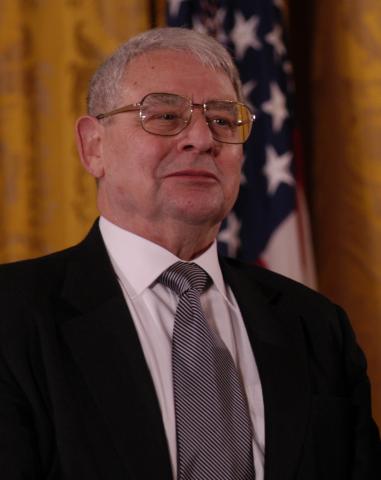The Royal Astronomical Society offers its condolences to the friends and family of X-ray astronomer and Nobel laureate Professor Riccardo Giacconi, who has died at the age of 87
Prof. Giacconi pursued the study of X-ray astronomy, developing instruments for deployment on high-altitude rockets and orbiting satellite observatories. In 1962 he led a team that found the first X-ray source outside the solar system, Sco X-1, located in the constellation of Scorpius and later found to be a neutron star drawing material from its giant companion.
Prof. Giacconi worked for NASA on the Einstein and Chandra satellites, for ESA on EXOSAT and XMM-Newton, and on the German ROSAT observatory. He went on to become the first director of the Space Telescope Science Institute and later director general of the European Southern Observatory.
For his pioneering work Prof. Giacconi won the Gold Medal of the Royal Astronomical Society in 1982 and became an Honorary Fellow of the Society in 1989. In 2002 he received a share of the Nobel Prize in Physics.
RAS President Prof. Mike Cruise paid tribute to Prof. Giacconi: “I knew Riccardo in the 1960s and 70s, when I was still a young scientist. He was a tough pioneer, and led a determined effort to get X-ray instruments into space. That paid off handsomely with the discovery of numerous X-ray sources outside the Solar System, and helped to confirm the existence of exotic objects like neutron stars and black holes.”
Media contact
Dr Robert Massey
Royal Astronomical Society
Tel: +44 (0)20 7292 3979
Mob: +44 (0)7802 877699
rmassey@ras.ac.uk
Image and caption

Notes for editors
The Royal Astronomical Society (RAS), founded in 1820, encourages and promotes the study of astronomy, solar-system science, geophysics and closely related branches of science. The RAS organizes scientific meetings, publishes international research and review journals, recognizes outstanding achievements by the award of medals and prizes, maintains an extensive library, supports education through grants and outreach activities and represents UK astronomy nationally and internationally. Its more than 4,000 members (Fellows), a third based overseas, include scientific researchers in universities, observatories and laboratories as well as historians of astronomy and others.
The RAS accepts papers for its journals based on the principle of peer review, in which fellow experts on the editorial boards accept the paper as worth considering. The Society issues press releases based on a similar principle, but the organisations and scientists concerned have overall responsibility for their content.

